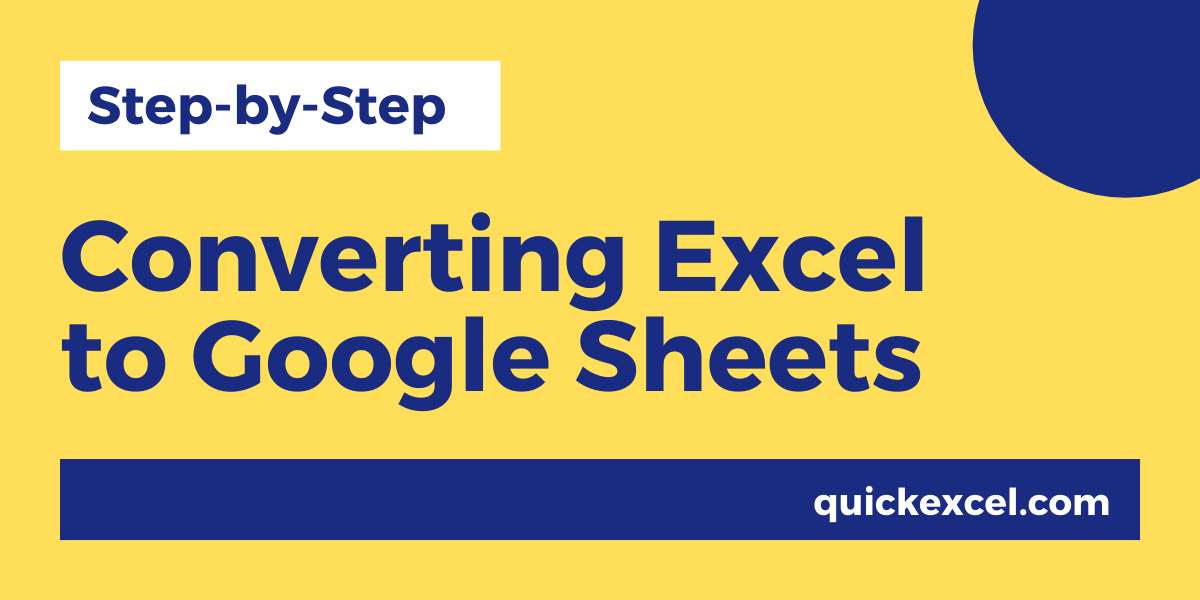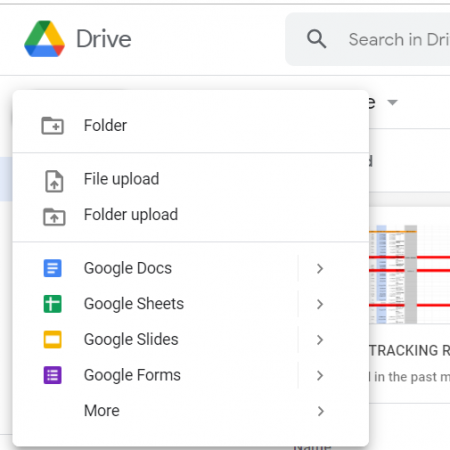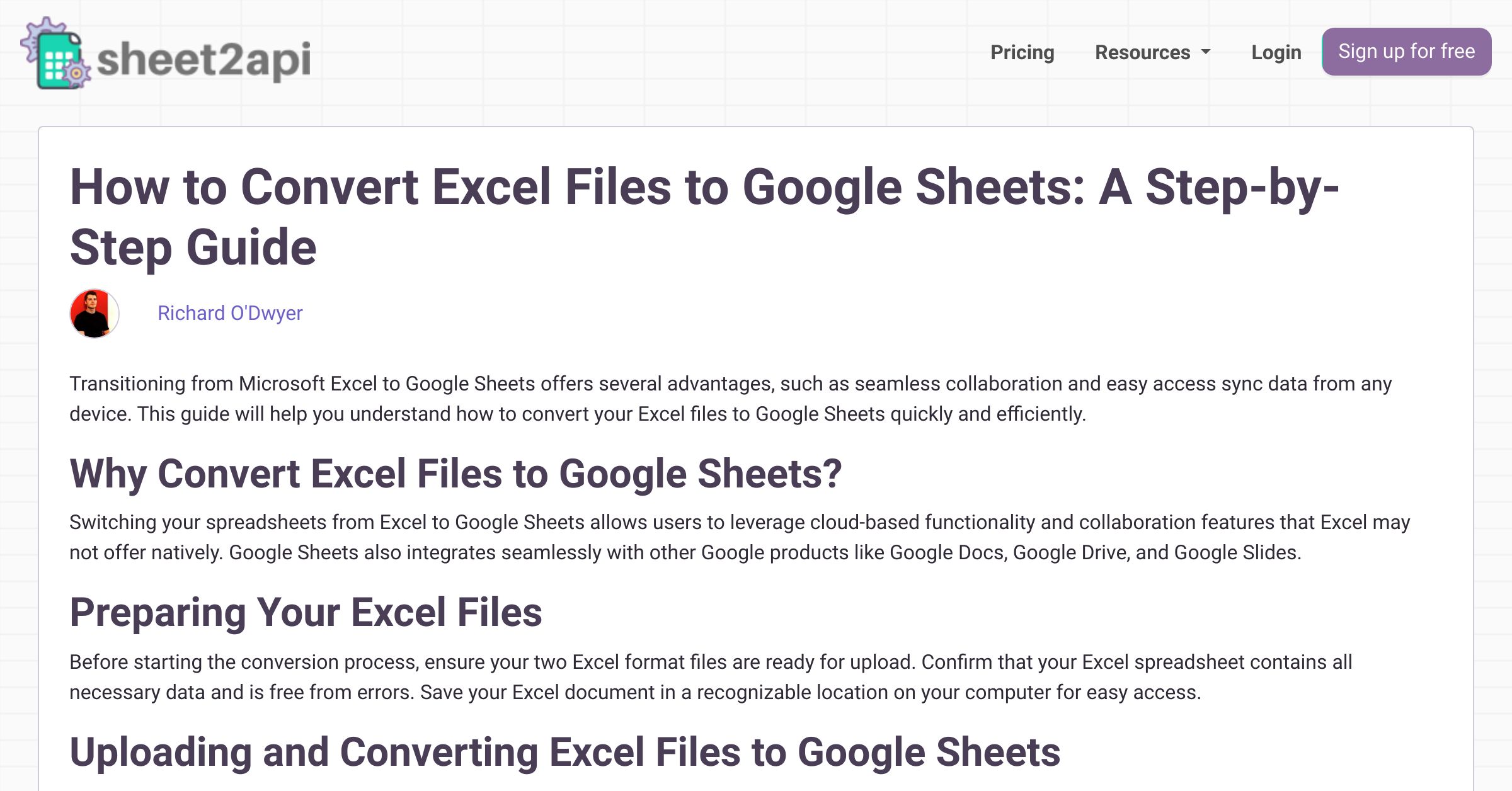Transfer Excel to Google Sheets Seamlessly: A Quick Guide

Are you looking to move your data from Excel to Google Sheets without losing any of your formatting or data integrity? The transition between Microsoft Excel and Google Sheets can be made with ease, thanks to Google's integration tools and features that cater to users accustomed to Excel's robust environment.
Understanding the Benefits of Google Sheets

Google Sheets has numerous advantages over traditional spreadsheet software like Excel, particularly when it comes to:
- Cloud-based collaboration: Multiple users can work on a document simultaneously, making real-time edits.
- Accessibility: Sheets can be accessed from any device with an internet connection, enhancing mobility and productivity.
- Automatic saving: Google Sheets auto-saves your work, reducing the risk of losing data.
- Add-ons and integrations: A wide array of free and paid add-ons can extend the functionality of Sheets.
Preparing Your Excel File for Transfer

Before you start transferring your Excel files, consider these steps to prepare:
- Organize Your Workbook: Ensure all sheets are properly named and formatted.
- Remove Personal Data: Scan your workbook for personal or sensitive data that might not need transferring.
- Check Formulas: Some Excel functions might not have direct Google Sheets equivalents or work differently.
How to Transfer Your Excel File to Google Sheets

Here’s a step-by-step guide to seamlessly transfer your Excel files:
-
Import from Drive:
- Navigate to Google Drive on your browser.
- Click on the “New” button in the top-left corner, then select “File upload”.
- Choose your Excel file from your computer and upload it.
-
Convert in Sheets:
- Once the file is uploaded, double-click to open it with Google Sheets.
- Google Sheets will automatically convert the Excel file into its format.
-
Check and Adjust:
- Review all sheets for any formatting or function discrepancies.
- Make adjustments as necessary to ensure data integrity.
⚙️ Note: Google Sheets might not support all Excel-specific features like pivot tables or advanced charts. You might need to recreate these in Sheets for optimal performance.
Advanced Tips for Data Transfer

Here are some advanced techniques for a more efficient Excel to Google Sheets transfer:
- Macros and Scripts: Use Google Apps Script to replicate complex Excel VBA macros.
- Conditional Formatting: Adjust any conditional formatting rules to ensure they work as intended in Google Sheets.
- Data Validation: Review and adjust data validation rules, which can differ slightly between Excel and Sheets.
Collaboration and Sharing

One of the strongest advantages of Google Sheets is its collaborative nature. Here’s how to make the most of it:
- Sharing Settings: Share your Google Sheets with specific users or make it public.
- Permission Levels: Control whether viewers can edit, comment, or only view the document.
- Real-Time Collaboration: Watch changes as they are made by other team members in real-time.
To summarize, transitioning from Excel to Google Sheets can unlock new ways to manage and share data effectively. While initial formatting and function adjustments might be necessary, the benefits of real-time collaboration, seamless accessibility, and the power of Google's ecosystem make it a compelling move. Whether you're a solo entrepreneur, a small business owner, or part of a large enterprise, Google Sheets offers a platform that can grow with your needs, providing flexibility, ease of use, and powerful analytical tools at your fingertips.
What are the main differences between Excel and Google Sheets?

+
The primary differences include accessibility (Excel requires installation, Sheets is cloud-based), collaboration features (Sheets allows multiple users to edit simultaneously), and integration with other tools. Excel might have a steeper learning curve but offers more advanced features for complex data analysis.
Can I still use Excel formulas in Google Sheets?

+
Most Excel formulas will work in Google Sheets; however, some functions might have different names or slight variations in syntax. You might need to convert or adjust complex macros and VBA scripts to Google Apps Script.
How do I handle data that can’t be directly transferred?

+
If specific features or data cannot be directly transferred, export the data in a compatible format like CSV, and then import it into Google Sheets. For functions or macros, you’ll need to rewrite them using Google Sheets’ tools or scripts.